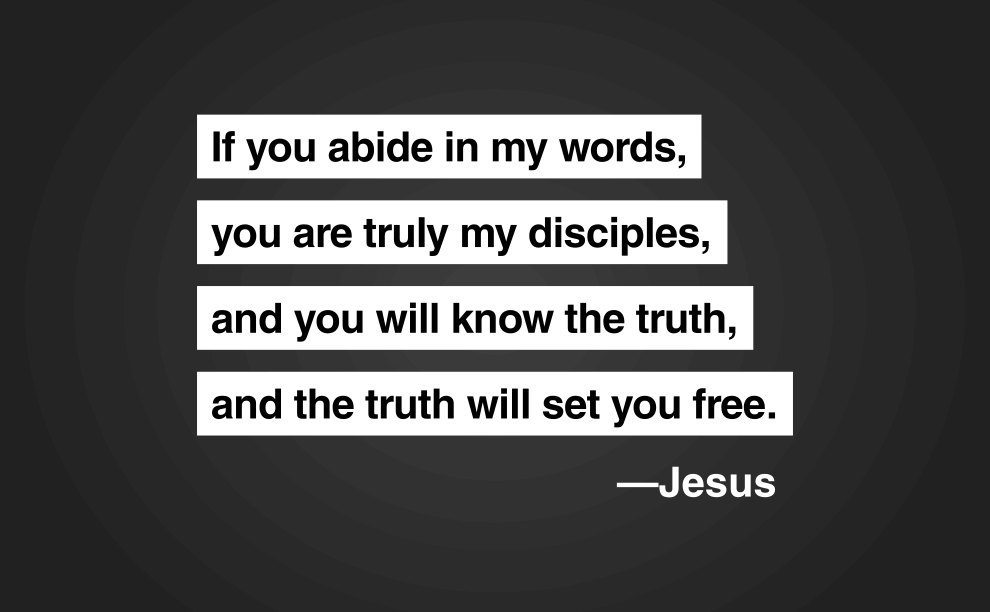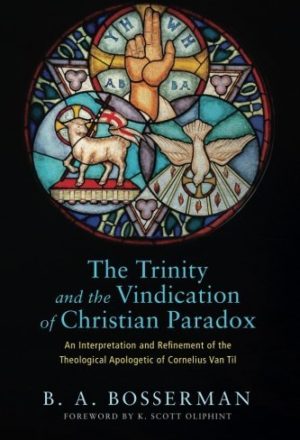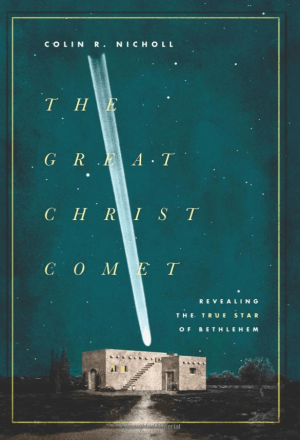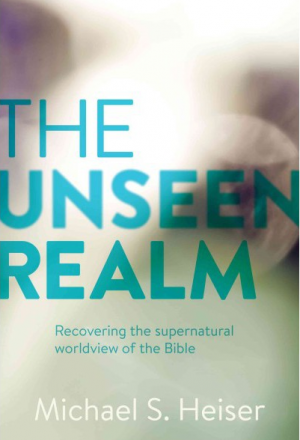Writing for an outlet that espouses the validity of strange and weird things may, at first, seem unusual for a guy like me. I don’t watch horror movies or read that much sci-fi. I have no elaborate conspiracy theories to expound. I haven’t read any books on demonology. I am a middle-aged, middle class white male working as a mid-level manager at a mid-sized bureaucratic organization. See what I mean? Pretty boring guy.
But I am a supernaturalist. I pursue transcendence, or what the Bible refers to as walking in the Spirit (Romans 8:3-6, Galatians 5:25). As a Christian, I long to be more discerning about the underlying spiritual forces at work in the activities of this present age. Sometimes these activities don’t seem too extraordinary but they are the context within which people are being reconciled to God as all things are being brought under the authority of the risen King Jesus…so we should pay attention. It is necessary for all Christians to advance in setting their minds on things above (Colossians 3:2).
What I’m interested in, and what I want to spend some time pondering with you in this short article, is how we can nurture enchantment and spiritual discernment in our everyday, seemingly normal lives. How can re-enchantment happen in how I view the world in sanctifying and glorious ways…as I read the same bedtime story to my kids for the 500th time…as I commute to work…as I deal with an irritating co-worker…as I make love to my wife…as I walk the dog…as I participate in corporate worship…as I do the dishes, etc.? These things can be seen as boring due to time and repetition dulling our sense of wonder (except, I pray, for love-making!). Or…these very same things can be marveled at with grateful hearts as tangible reminders of transcending grace infused with eternal significance.
Too often, speculating on obscurities is a way to escape the very immediate spiritual realities and demands of day-to-day life. But the Bible expounds life united with Christ and walking by the Spirit in very practical, day-to-day terms (Ephesians 4:25-29, Colossians 3:12-13, 1 Thessalonians 4:11-12). Faith does not provide a way of escape out of “boring” situations, but leads Christians to incarnate spiritual realities into the seemingly normal situations we find ourselves in each day.
To accomplish this integrated enchantment, this Spirit walk, our perspective must be rooted in the truth that Christianity is not just one worldview option in a limitless menu presented to detached rational selves as they seek to form their own meaning and unique identity. This is the lie of self-expressive, materialistic secularism. The idea that my self-fulfillment is absolute, that I serve as arbiter of truth, and that I define my own identity on my terms appears to be an increasingly prominent mindset in the modern western world. But Christianity is objective reality that has played out in real historical events which have severe consequences for all of mankind…whether you “like” it on Facebook or not.
Charles Taylor, a widely-respected Canadian philosopher, wrote about the buffered self and the immanent frame as two defining aspects of this present blip in history.1 Summarizing ours as a “distracted, secular age,” Taylor shows how a stark shift of perspective on existence has infiltrated all aspects of modern society and made it very difficult for modern man to conceptualize of transcendent influences in everyday life. The disenchantment of modern existence can be better understood by thinking about these two interrelated concepts. Let’s begin by looking at divergent theories of how an individual interacts with external realities.
The idea of a porous self is one which is open to the forces of the external world and searches for inherent meaning in the events and substance of the world outside itself. It realizes there are conscious forces directing these events and substances. The self is also a mere substance, is creaturely, so it can be acted upon and influenced by things outside itself in sometimes inconceivable ways. This has been the primary perspective of mankind throughout all of history. In contrast, a buffered self is an illusion which sets oneself up to be the ultimate adjudicator of meaning and truth. The buffered self views the world from the inside out, instead of letting the outside in. This individual portends to be the only reliable source of truth as it is constantly projecting meaning onto a random, chaotic physical world. The buffered self filters external events, substances, and propositions through the lens of its own individual rationality in order to decide for oneself what is true, beautiful, and good. The ultimate goal of the buffered self is to create a fulfilled, justified individual with mastery over the seemingly random events of everyday life. For the modern secular materialist, this buffered existence takes place within what Taylor refers to as an immanent frame.
The immanent frame is a perspective which places the boundaries of possible causes around the material universe as individually perceived through observation. Sometimes this observation follows a scientific model, other times it is just gut-level intuition. In any case, there is no space for causes outside of physical forces and there is no need for any justification of self outside of what an individual’s reason can interpret from personal experience.
In this secular age, Taylor notes, “The whole culture experiences cross pressures, between the draw of the narratives of closed immanence on one side, and the sense of their inadequacy on the other.” So even though the ideas of the immanent frame and the buffered self form a somewhat protective blanket around modern man, it does not ultimately fulfill. This subconscious unease should be explored as a way to bring gospel truth into people’s lives.
How do we ourselves break through the immanent frame that the world is pushing on us as the defining paradigm for existence and how do we live alluring Kingdom-centered lives to disrupt the secular malaise in our neighbors’ hearts? How do we do this while avoiding the pull towards the gnostic error of separation from the world as the way to attain higher things? In short, how do we merge immanence and transcendence into a God-honoring, neighbor-loving life? It seems like I’ve heard of someone who has done that before. Perfectly. Without blemish. Hmmmm… (1 John 4:9-11).
Living an enchanted, spiritual life in opposition to the predominant secular, materialist worldview in modern western society should not lead to a detached, speculative existence. Many times in Scripture, especially in Paul’s writings, there are warnings about being sidetracked by speculations and useless myths (1 Timothy 1:3-4, 2 Timothy 4:3). Anxiety and fear are not characteristic of true believers (Matthew 6:25, 2 Timothy 1:7).
The biblical way to live in antithesis to the materialistic, self-fulfillment narrative is to be humbly aware of the wonder all around us and the simple beauty of striving for congruence between deep-rooted Biblical belief and a life lived out in service to God and neighbor. Sometimes this manifests itself in clearly supernatural occurrences, but often orthopraxy is achieved in unextraordinary settings.
For example, a woman that I worked with in our mid-sized bureaucratic organization recently passed away very suddenly and unexpectedly. It was an intense event that shook everyone in the office. The weight and severity of death rushed into this boring and dull office setting. It was as though the safe, predictable little world that we imagined we existed in was blown apart and we were all reminded of deep things we try to distract ourselves from pondering. Death busted through the immanent frame in a very real and immediate way. Through a prayerful approach to this situation and by the Spirit’s leading, I had the chance to share the hope that I have in Christ with a person I’ve known for years but never had the door open to consider gospel truths with them. This does not seem to be an abnormal, supernatural occurrence, but there is no doubt that the Spirit of God filled me with thoughtful boldness and this person’s heart was clearly moved as our discussion merged the immanence of our working relationship and mutual friend’s passing with the transcendence of Christ’s victory over death and the gift of eternal life.
Saying that re-enchantment often takes place in what we perceive to be normal settings does not mean, however, that the virtues which manifest God’s righteousness are ordinary or easy. Love, joy, peace, patience, kindness, goodness, self-control are especially difficult to consistently enact day-in and day-out, but they are what Paul lays out as the true marks of belief and newness of life (Galatians 5:22). It is truly enchanting to see these attributes lived out in the midst of messy, broken situations. This is a life of incarnation, not escape. It is one of pressing into boring, normal situations with the majesty of a resurrected Savior and a living Spirit…which leads us to see that nothing is boring, random or normal in this post-resurrection age.
More so, we see in Paul’s letter to the church in Philippi (Philippians 1:27-28) that the Christian’s rebuke to a world that’s passing away in unbelief, the sign we give of our salvation, is “..standing firm in one spirit, with one mind striving side by side for the faith of the gospel, and not frightened in anything by your opponents.” One mind. Together striving that the glory of the gospel might be revealed. This collective unity nurtured by the Holy Spirit is a stark contrast to the relentless pursuit of individualistic self-fulfillment playing out all around us and being marketed to us as the path to happiness.
And Paul says we’re not to be “frightened in anything.” Our lives of joyful, fearlessness are “a clear sign to them of their destruction.” Fretting over worldly power structures or trying to escape this legitimately dangerous world via detached speculations is not fitting for the Christian. Incarnation, bringing the transcendent to be immanent, is the model we’re given to shake the modern, bored, self-expressive secularist out of their slumber. Jesus of Nazareth sojourned through the majority of his earthly life in a rural backwoods town, hanging out with fishermen, and feeding poor people. Jesus interfaced with demons, but he also sat at a dinner table and talked with friends. Jesus walked on water and healed the sick, but he also asked a woman for a drink of water because he was thirsty…and then told her all that she ever did (John 4:29).
The incarnation of God in human flesh is disruptive to a world with its sights set low. It shatters the immanent frame and lifts our eyes off of ourselves to perceive the cosmic potential and ramifications of everyday events. Jesus perfectly manifested the glory of the transcendent, living God in sometimes seemingly routine ways. Having been redeemed through his obedience, I pray that we may follow his lead for the glory of God and the good of our neighbor.
Trending
References:
- Taylor, Charles. A Secular Age, Harvard University Press, 2007





















